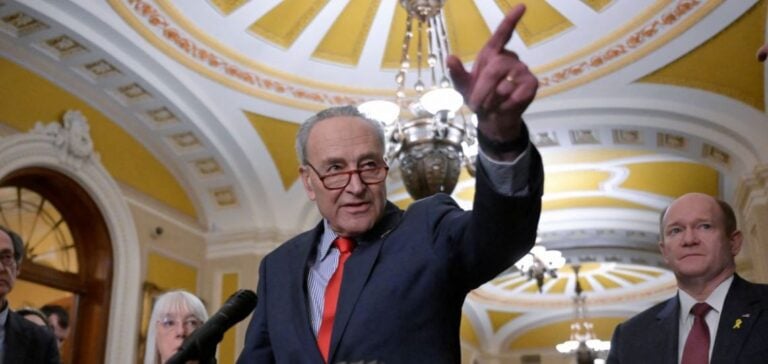Democratic senators, led by Chuck Schumer, have called on the Department of Justice (DOJ) to open an investigation into allegations of collusion between major U.S. oil companies to manipulate gasoline prices. This initiative follows accusations by the Federal Trade Commission (FTC) against the former CEO of Pioneer Natural Resources, Scott Sheffield.
The FTC revealed that Sheffield had attempted to collaborate with other US oil companies and the Organization of the Petroleum Exporting Countries (OPEC) to limit production growth and keep prices high. These accusations are based on public and private statements from Sheffield, suggesting a uniform approach among companies to control production.
Economic implications
The senators point out that the alleged collusion may have contributed to a 49% reduction in the growth rate of US oil production since the pandemic. As a result, the average price of a barrel of crude oil rose by $23.41 and the price of retail gasoline climbed by $0.94 per gallon, imposing an additional financial burden on American households, especially those with low incomes.
This investigation could shed light on common industry practices, potentially in violation of the Sherman Act of 1890, an antitrust law that prohibits monopolies and restrictive business practices.
Reactions from key players
ExxonMobil, involved in the Pioneer acquisition, said it was unaware of Sheffield’s actions and cooperated fully with the FTC. Sheffield, for its part, rejected the accusations, claiming that its actions were aimed at increasing US oil production. He also criticized the FTC for ignoring his efforts to increase production and stabilize world prices.
Sheffield’s lawyers pointed out that Pioneer had doubled its production during the period in question, making the company the largest producer in the Permian Basin region. ExxonMobil and Chevron also increased production during this period, contradicting allegations of collusion to limit output.
Political context
This request for an inquiry comes in a tense political context, as the elections approach. The Democrats are seeking to highlight the practices of the big oil companies to mobilize the electorate on economic and environmental issues. Accusations of collusion reinforce criticism of the Biden administration’s energy policies, often blamed by Republicans for rising energy prices.
The repercussions of this investigation could be significant for the US oil industry, potentially influencing production strategies and pricing policies in the future. This case highlights the tensions between regulatory imperatives, market dynamics and political stakes in a sector that is crucial to the national economy.
The findings of this investigation could not only affect the companies involved, but also shape future regulations and public perceptions of the oil industry.






















